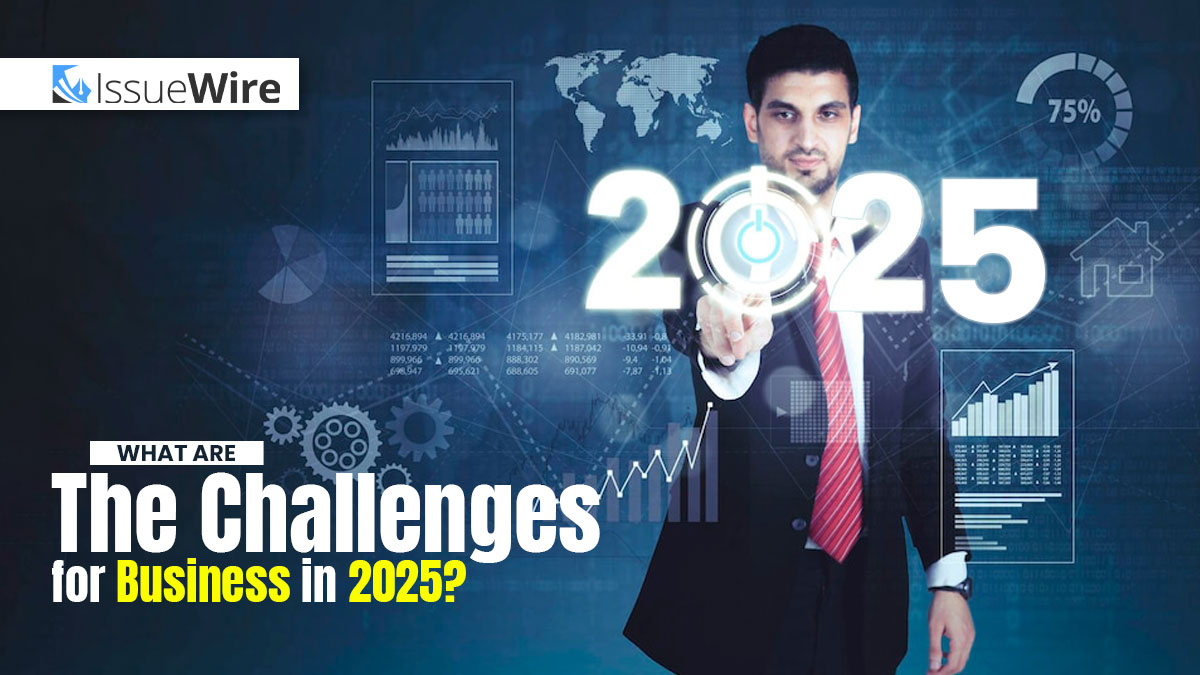As the world enters 2025, businesses across the globe face an increasingly complex and fast-evolving landscape. This blog will explore the major challenges businesses face in 2025, including geopolitical instability, managing a global workforce, cyber threats, data protection, diversifying revenue reserves, the impact of job automation, the pressure to maintain sustainability, and evolving consumer expectations.
1. Geopolitical Instability and Its Business Implications
Geopolitical instability remains a significant concern for businesses in 2025. Rising tensions between major economies, trade disputes, and regional conflicts continue to disrupt global supply chains and market stability. Companies operating internationally must contend with changing regulations, tariffs, and the risks posed by economic sanctions.
For businesses, geopolitical uncertainty can lead to:
- Supply chain disruptions and increased costs.
- Regulatory changes that affect market access.
- Fluctuating currency values impacting profitability.
To mitigate these risks, businesses must adopt flexible supply chain strategies, engage in scenario planning, and build relationships with diverse suppliers across different regions. Additionally, maintaining compliance with international regulations is crucial to avoid legal and financial penalties.
2. Managing a Global Workforce
The global workforce in 2025 will be more diverse, remote, and digitally connected than ever before. With employees working across various time zones and cultures, businesses face new challenges in managing productivity, communication, and engagement.
Key challenges include:
- Ensuring effective collaboration in a hybrid or fully remote environment.
- Navigating different labor laws and employment standards.
- Addressing cultural differences and fostering inclusion.
To overcome these challenges, businesses must invest in advanced collaboration tools, provide ongoing cultural competency training, and develop flexible work policies. Furthermore, adopting global HR strategies that align with local regulations is essential for managing international talent effectively.
3. Increasing Cyber Threats and Data Protection Concerns
As digital transformation accelerates, so does the threat of cyberattacks. In 2025, cybercriminals continue to develop more sophisticated techniques to exploit vulnerabilities. Ransomware attacks, data breaches, and intellectual property theft are among the most pressing cybersecurity concerns.
The consequences of cyberattacks can be severe, including:
- Financial losses and operational downtime.
- Damage to brand reputation and customer trust.
- Legal liabilities and regulatory penalties.
Businesses must prioritize robust cybersecurity measures, such as multi-factor authentication, regular system audits, and employee cybersecurity training. Additionally, adopting advanced threat detection systems and incident response plans can help mitigate potential breaches and ensure business continuity.
4. Data Protection and Regulatory Compliance
In 2025, data privacy regulations continue to evolve, with governments worldwide tightening their oversight of how businesses collect, store, and process personal information. Laws like the EU’s General Data Protection Regulation (GDPR) and similar frameworks in other regions impose strict compliance requirements.
Key data protection challenges include:
- Adapting to evolving privacy laws across multiple jurisdictions.
- Implementing secure data governance frameworks.
- Managing consumer expectations regarding data transparency.
To stay compliant, businesses must adopt a proactive approach by regularly reviewing privacy policies, conducting data impact assessments, and investing in technologies that enhance data security. Clear communication with customers about how their data is used can also foster trust and brand loyalty.
5. The Impact of Automation on Jobs and Workforce Strategy
Automation continues to reshape industries in 2025, from manufacturing to knowledge-based work. While automation improves efficiency and reduces costs, it also raises concerns about job displacement and the need to reskill the workforce.
Businesses must navigate the following challenges:
- Balancing automation with human labor to maintain workforce morale.
- Addressing the ethical implications of job displacement.
- Investing in continuous learning and workforce upskilling.
To manage these shifts, businesses should implement automation thoughtfully, focusing on augmenting human capabilities rather than replacing jobs entirely. Offering training programs and career development initiatives can help employees adapt to new technologies and maintain a competitive workforce.








